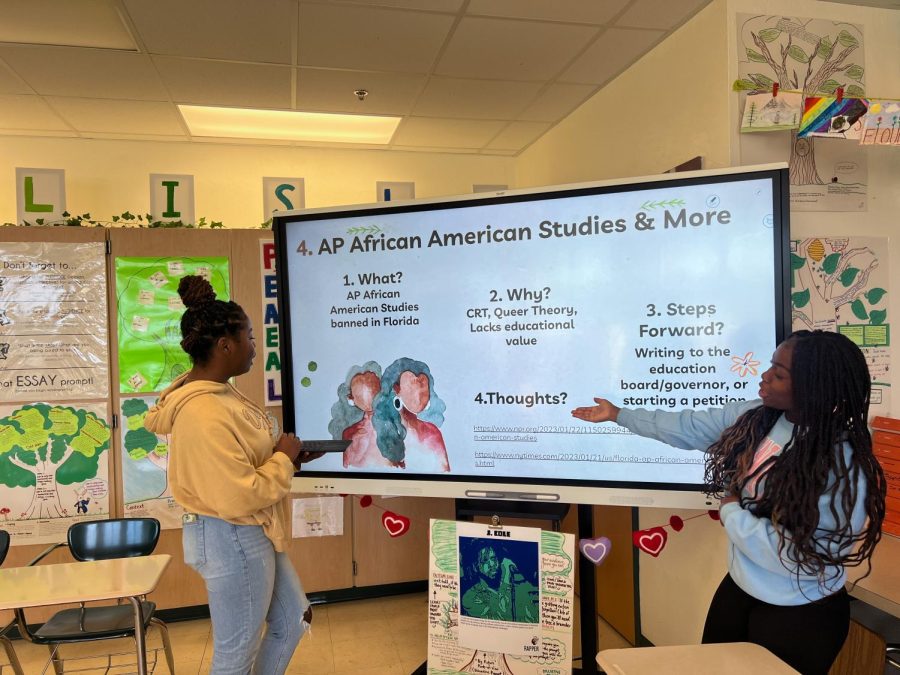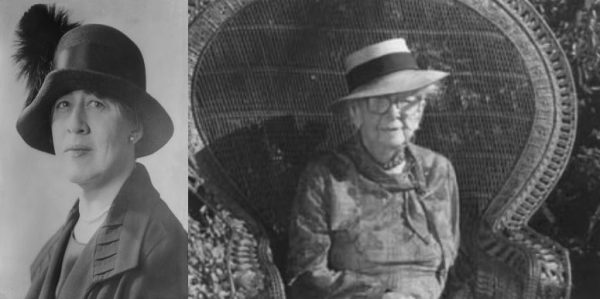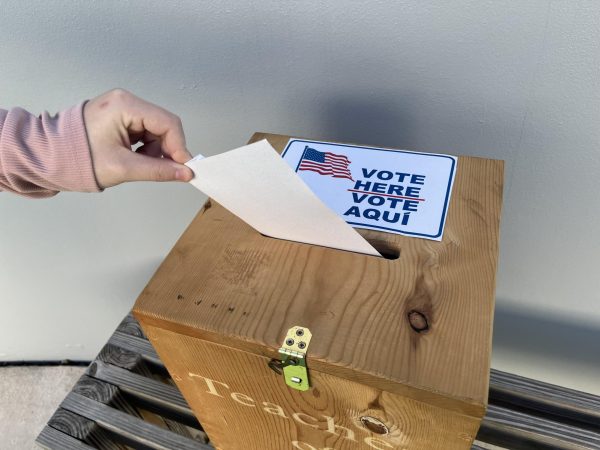Florida rejects AP African American Studies Course
Harlande Lamour and Alaila Ferguson, leaders of the BSU club, are informing the member on the recent rejection of the AP African American Studies course.
On Jan. 20, Florida’s Department of Education rejected an interdisciplinary Advanced Placement course on African American studies due to claims of the class following a political agenda and violating state laws.
Gov. Ron DeSantis and the Department of Education attribute their decision to questionable areas of the courses curriculum, stating the class is not “historically accurate” and includes examples of “woke indoctrination” contrary to laws regulating the discussion of race in classrooms.
“We believe in teaching kids facts and how to think, but we don’t believe they should have an agenda imposed on them,” DeSantis told CBS News.
The course curriculum is accused of going against state laws such as the Individual Freedoms Act — referred to by critics as the Stop WOKE Act — which controls the discussion of race-related issues within classroom settings.
“Florida’s decision to reject the AP course was sudden without really a thorough explanation, but I do understand in some way why they did reject the course because of the lack of educational value and the controversial topics the course brought,” Lucas Kirkman, junior, said. The course is described by the College Board as reaching into a “variety of fields” such as literature, political science and arts and humanities.
The state has since issued statements saying there were concerns about several different topics including Black Queer studies, activism and feminist literary thoughts, causing some backlash from citizens who believe these issues play a key role in African American culture.
“All students, especially our Black students, should have access to an AP course that teaches them about African American culture, contributions, and impact in our society in American history,” Moriah Carlisle, Black Student Union sponsor, said. “Our culture is beautiful, vibrant, intellectual and creative in all realms of philosophy, civil rights, science, the arts. Students have the right to know their history.”
Several Florida students have stepped forward and plan on suing the state government and DeSantis following their decision to reject the course. Civil rights attorney Ben Crump and attorney Craig Whisenhunt will be representing these students.
“I don’t agree with the threat to sue DeSantis because I think a revision could be made,” Kirkman said. “It is always a good thing to look over the material to make sure that the course offers actual educational value and proper topics for more advanced learning.”
The curriculum is currently undergoing a multi-year “pilot phase,” and the proposed course is expected to drastically change before being available to all students.
The College Board has announced the official framework of the course will be released early February after undergoing some revisions in response to its rejection in Fla. schools.
“The official course framework incorporates this feedback and defines what students will encounter on the AP Exam for college credit and placement,” the College Board told NBC News on Jan. 24.
The Education Department currently welcomes these amendments, and credits their decision for providing students access to a “historically accurate, unbiased course.”
The White House recently criticized DeSantis’s decision to reject the course, calling the state government’s actions “incomprehensible.” Florida legislation remains steadfast in their choice.











